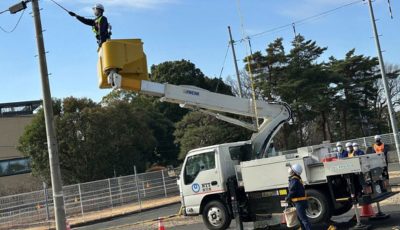Can seed dispersal be restored in Guam’s forests?
Dr. Haldre Rogers, an adjunct professor at the University of Guam Western Pacific Tropical Research Center, is conducting research of what happens to a forest when native seed dispersers such as birds are no longer present in the place they once called home. For the first time, Rogers and her collaborators will also be examining possible ways to recover seed dispersal in the forests of Guam.
Funded by Department of Defense Strategic Environmental Research and Development Program, Rogers and her research team will continue their investigation of the impact of biodiversity loss on the tropical forests of Guam in comparison to forests on Saipan and Rota. The funding will span a period of five years and may be instrumental in the recovery of Guam’s native forests.
Rogers, a Huxley Faculty Fellow at Rice University, will be collaborating on this project with Dr. Julie Savage from Colorado State University and Dr. Joshua Tewksbury from University of Washington.
“This funding will allow us to look at how the loss of seed dispersers like birds affects Guam’s jungles,” said Rogers. “Rather than just cataloging what is happening to the forests, we are also trying to determine how to restore healthy forests on Guam. Our project will study which native seed dispersers would be most beneficial to reintroduce and will examine the effects of non-native pigs and rats as both seed dispersers and seed predators.”
Since receiving their first research grant from the National Science Foundation in 2008, Rogers and her team have conducted scientific research on important environmental issues faced by Guam and other Micronesian islands. On Saipan and Rota, native bird populations are intact, but in Guam, where most of the native birds have been lost to predation by the brown tree snake, the cascading ecosystem responses have yet to be completely understood.
For more information on the Ecology of Bird Loss Project, contact the University of Guam Western Pacific Tropical Research Center at 735-2092. (UOG)




























